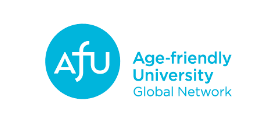How Clear and Effective Communication Can Help with Age-Friendly Care
August 29, 2023 Daniel Mansour and Courtney Wittstadt
Faculty and students in the Interprofessional Education Care in Geriatrics Aging in Place course will learn how to use clear and effective communication to improve access to health services.
Older adults constitute the fastest-growing segment of the population in the United States, and the complexity of health care delivery is consistently growing as well. Hence, the interaction between older adults and their informal caregivers, on the one hand, and the U.S. health care system, on the other, can be fraught with significant challenges and conflicts.
Discussions related to maintenance of health and independence, polypharmacy, multiple chronic conditions, long-term care, palliative care, and insurance intricacies, to name a few, can be difficult, and the challenges are magnified for older adults living in underserved/underrepresented communities.
Limited health literacy is prevalent, with only 12 percent of adults possessing the skills required to understand the demands of our complex health care system. In response, the Agency for Healthcare Research and Quality (AHRQ) has advocated for the implementation of a universal precautions approach by health care professionals. This approach assumes that patients may face difficulties comprehending health information.
To facilitate patient understanding and better health care management, health care professionals can utilize strategies such as the teach-back method. This includes helping patients and their caregivers understand their care plans by providing easy-to-understand explanations, giving them the chance to summarize those plans, and clarifying any misunderstandings as needed. In all situations, the responsibility of ensuring understanding falls on the practitioner; patients should not be expected to improve their health literacy skills.
Faculty and students in the 3-credit graduate-level course offered in the fall and spring, Interprofessional Education Care (IPE) in Geriatrics Aging in Place (PHMY 5011/CIPP621), will come together this fall to learn more about health literacy, the AHRQ’s call to use universal precautions, and the teach-back method.
The course has already exemplified positive community outreach in West Baltimore, where students make weekly visits to older neighbors. The course previously helped identify challenges for older adults with both accessing hearing health care and dental care, including assisting this population in securing dental appointments with providers and educating them on the temporary alleviation of dental pain.
Health literacy is improved by utilizing teamwork with the West Baltimore community. Clear and effective communication of health information improves access to usable health services, thereby moving health care delivery toward a more equitable and person-centered system and overcoming some of the challenges and conflicts in our care delivery. This drive toward improvements in health literacy and better delivery of care aligns with age-friendly efforts on a community and university level.